Expedition Log: Cook Islands – Day 3
As we landed in Aitutaki, the science team was excited to discover that it was humpback whale season. Each year between July and October these majestic animals pass by the Cook Islands on a 4,000 mile journey as they migrate from cooler feeding grounds in the Southern Hemisphere to warmer waters to mate and give birth.
Humpback whales (Megaptera novaeangliae) are cetaceans, belonging to the family Balaenopteridae. This is the same family that contains blue, sei and minke whales amongst others. These are rorqual whales, with two distinct characteristics: dorsal fins on their backs and ventral pleats which run from the top of the lower jaw down to their stomach area. Like other cetaceans and marine vertebrates, individual humpback whales can be identified by their unique coloration, shape and pattern on their dorsal and tail fin- similar to how a human is identified by their fingerprint.
Humpbacks are probably best known for their singing, which reverberates through the water for hundreds of metres. It is believed to be a method of communication and used to attract mates. These singing giants can reach 19 metres in length and weigh up to 40 tons!
Each time we ventured out of the protection of Aitutaki’s lagoons onward to our dive sites, we always had our eyes peeled for the splash of a fin or their distinct blow. Our boat driver, Onu, assured us that we would see whales at least once during our two-week mission, and he was right. On our sixth day of diving, we jumped into the chilly waters off the southeast corner of the atoll. We spent the dive surveying corals and reef fish, and searching for the crown-of-thorns starfish. As we reached our 60 minutes dive time, we began heading up to 3 metres for our safety stop. It was during this stop, that out of nowhere, a humpback whale approached us. I couldn’t quite believe what I was seeing, and thought for a second that I was imagining it until I saw Andy reaching for his camera to capture this incredible moment.
We were with the whale for around 5 minutes and it came within 3 metres of us, perhaps attracted to the sound of our bubbles. It moved slowly and gracefully, watching us the whole time. I have heard humpbacks sing underwater, I’ve seen them play and breach on the surface and I’ve seen them cruising past islands, but I have never been underwater with one. It was a truly remarkable moment, one I didn’t quite believe possible, and we were very lucky as it circled back to us for a second time.
As we watched the humpback whale disappear into the blue waters of Aitutaki, our masks were full of water from smiling too much. We were desperate to reach the surface to share our excitement with Onu.
Photos and videos by Andrew Bruckner.
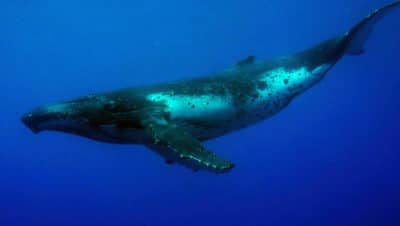
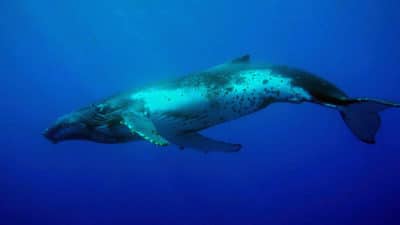
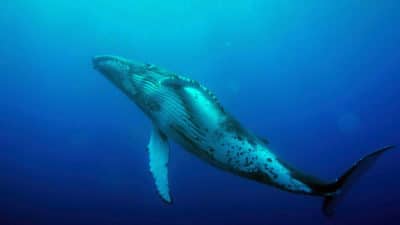
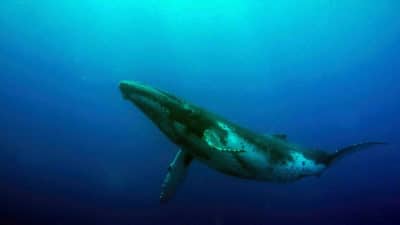
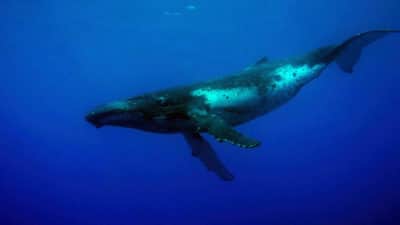
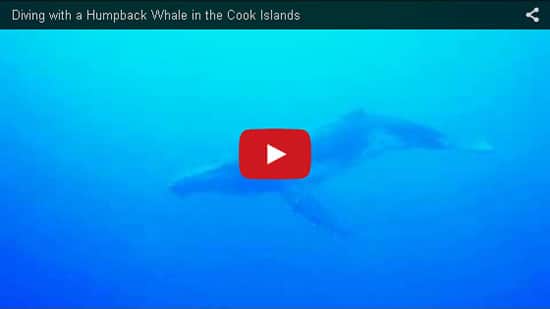

One Comment on “Whale Season”
Virginia Spinelli-Buser
I love to read and view pics of whales. I hope there are less fishing lines left by foolish fishermen. I’ve read that there are times when a diver can swim around a whale cutting off fishing line! that’s wonderful. I am a landlubber . . .a native of Colorado!